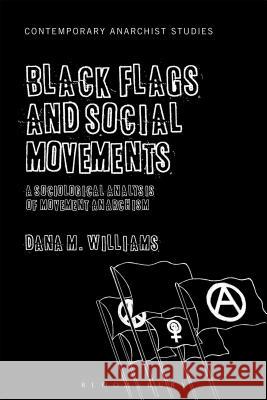Black Flags and Social Movements: A Sociological Analysis of Movement Anarchism » książka
Black Flags and Social Movements: A Sociological Analysis of Movement Anarchism
ISBN-13: 9781628926262 / Angielski / Twarda / 2016 / 288 str.
Black Flags and Social Movements: A Sociological Analysis of Movement Anarchism
ISBN-13: 9781628926262 / Angielski / Twarda / 2016 / 288 str.
(netto: 355,02 VAT: 5%)
Najniższa cena z 30 dni: 369,81 zł
ok. 22 dni roboczych.
Darmowa dostawa!
Although it is challenging to study the modern anarchist movement, given its aversion to surveillance and external documentation, there is enough evidence available to draw preliminary conclusions about this global movement, and some of its characteristics, including ideology, organizations, and aspirational motivations. Scholars have built theories to explain the existence and behavior of social movements-yet almost none of this work has focused on anarchist movements, which have unique qualities very different from other mainstream movements. Likewise, anarchists and other social movements have rarely utilized these theories, likely because of their obtuseness and lack of practicality.
The two major frameworks of interest are political opportunity and the so-called new social movement theories. Despite popular perceptions of anarchist allergy to organization, the opposite is more often the case. As such, a closer look at anarchist forms of organization model adoption and structure is warranted. Thus, this book involves a multi-level (macro, micro, and meso) analysis of movements. Major sociological ideas are utilized in the course of this analysis, including social capital, social networks, institutional isomorphism, social trust, and factionalization. This analysis considers numerous anarchist movement tendencies, organizations, and events of interest to social scientists as well as activists, such as anarcho-syndicalism, green anarchism, Food Not Bombs, Indymedia, anti-Iraq War protest, Black anarchism, and many others. The many distinctions between anarchist, anarchistic, anarchist-friendly, radical, and liberal movements are catalogued in detail. "Black Flags and Social Movements" collects and develops upon many previously-published studies as well as presents new empirical research and is a fascinating read for anyone interested in contemporary anarchism.











